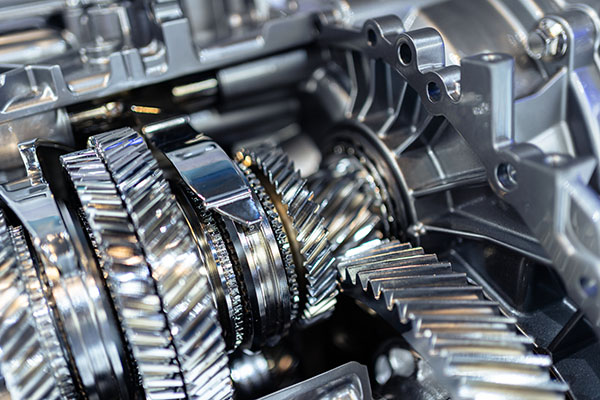
The intricate workings of a vehicle's transmission can often seem like a mystery to many drivers, leading to a plethora of questions and uncertainties. Understanding the fundamentals of a car's transmission is key to ensuring its longevity and optimal performance. From the significance of transmission fluid to the signs of potential issues, delving into the world of transmission can empower drivers to make informed decisions and take proactive measures in maintaining their vehicles.
What is the role of transmission fluid, and why is it crucial for the transmission's performance?
Transmission fluid serves as a lubricant and coolant for the transmission system, ensuring smooth gear shifting and preventing overheating. Regularly checking and replacing transmission fluid according to the manufacturer's guidelines is crucial in maintaining the transmission's efficiency and preventing costly repairs down the line.
How often should the transmission fluid be changed, and what are the signs of contaminated or degraded fluid?
The frequency of transmission fluid changes varies depending on the vehicle's make and model. However, a general guideline is to replace the fluid every 30,000 to 60,000 miles. Signs of contaminated or degraded fluid include a burning smell, irregular shifting, and fluid discoloration. Promptly addressing these signs can prevent potential transmission failures and extend the lifespan of the transmission system.
What are the common signs of transmission problems, and how should they be addressed?
Common signs of transmission issues include delayed engagement, slipping gears, and fluid leaks. Addressing these problems promptly by seeking the expertise of a certified mechanic can prevent further damage to the transmission system. Regular transmission inspections and maintenance can help detect potential issues early, allowing for timely interventions and cost-effective repairs.
What are the different types of transmissions, and how do they impact the vehicle's performance and fuel efficiency?
The two main types of transmissions are manual and automatic, each with distinct mechanisms that influence the vehicle's performance and fuel efficiency. Manual transmissions offer more direct control and often contribute to better fuel economy, while automatic transmissions provide ease of use and seamless gear shifting, particularly in heavy traffic or urban driving conditions.
How can I extend the lifespan of my vehicle's transmission?
Adhering to regular maintenance schedules, such as fluid checks and replacements, conducting timely inspections, and driving with care and caution can significantly extend the lifespan of your vehicle's transmission. Additionally, avoiding aggressive driving and excessive towing can mitigate wear and tear on the transmission system, ensuring its long-term durability and efficiency.
What are the common causes of transmission overheating?
Transmission overheating can be caused by various factors, including low fluid levels, fluid leaks, excessive towing, and continuous stop-and-go driving in high-temperature conditions. To prevent transmission overheating, ensure that the transmission fluid levels are within the recommended range, address any fluid leaks promptly, and avoid subjecting the vehicle to excessive towing or prolonged idling in hot weather. Installing an auxiliary transmission cooler can also help dissipate heat and maintain the transmission's optimal operating temperature.
What is the importance of regular transmission inspections?
Regular transmission inspections are vital in detecting potential issues early and preventing major transmission failures. These inspections typically involve checking the fluid levels and quality, examining for any leaks or unusual noises, and assessing the transmission's overall performance. By conducting regular inspections, drivers can identify minor issues before they escalate into costly repairs, ensuring the smooth operation of the transmission and contributing to the overall reliability and longevity of the vehicle.
Spectrum Car Care is always here to help out with your transmission maintenance and repair procedures - just give us a call, and we will schedule you for a visit!